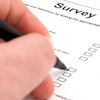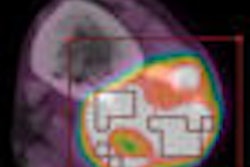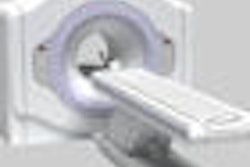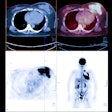A new study presented at this week's American College of Cardiology (ACC) meeting in Orlando, FL, has found that a novel PET tracer is clinically safe, has acceptable dosimetry, and has a high myocardial uptake at rest that significantly increases with adenosine stress. The tracer is being developed by Lantheus Medical Imaging of North Billerica, MA.
Lead investigator Dr. Jamshid Maddahi, a professor of molecular and medical pharmacology and medicine at the David Geffen School of Medicine at the University of California, Los Angeles (UCLA), said the results show promise that the tracer, BMS747158, could help address the need for a radiopharmaceutical that provides greater accuracy and broadens the applicability of PET technology for myocardial perfusion imaging.
Maddahi's poster presentation at the ACC meeting also noted that the mean effective dose of BMS747158 was similar to that of F-18 FDG, but the radiation level absorbed by the organ receiving the highest dose was significantly lower with BMS747158.
In one phase I study, 13 patients at UCLA were injected with 222 MBq of the radiotracer intravenously at rest. In a second phase I study at UCLA and Johns Hopkins University Medical Center in Baltimore, 12 additional subjects received 93 MBq of BMS747158 intravenously at rest and 127 MBq under stress (either pharmacologically using adenosine or with treadmill exercise) the following day.
The data from the 13 UCLA patients at rest showed there were no drug-related adverse events and that the radiation dosimetry results were favorable, said D. Scott Edwards, Ph.D., Lantheus Medical Imaging vice president of global research and development.
The second part of the study also found that BMS747158 had high myocardial uptake among patients at rest and under stress, which, Edwards added, points to its potential in PET myocardial perfusion PET imaging.
Phase II testing began in January and will expand the research beyond UCLA and Johns Hopkins, with an anticipated patient sample of approximately 120 subjects.
Related Reading
ACC study documents echo contrast safety in critically ill patients, March 31, 2009
Study: Echo with Definity contrast aids in cardiac diagnosis, February 24, 2009
JACC study shows no additional risk from echo contrast agents, January 8, 2009
Lantheus touts positive Definity results, December 16, 2008
Flash-contrast echocardiography safe for assessing myocardial ischemia, December 4, 2008
Copyright © 2009 AuntMinnie.com




















